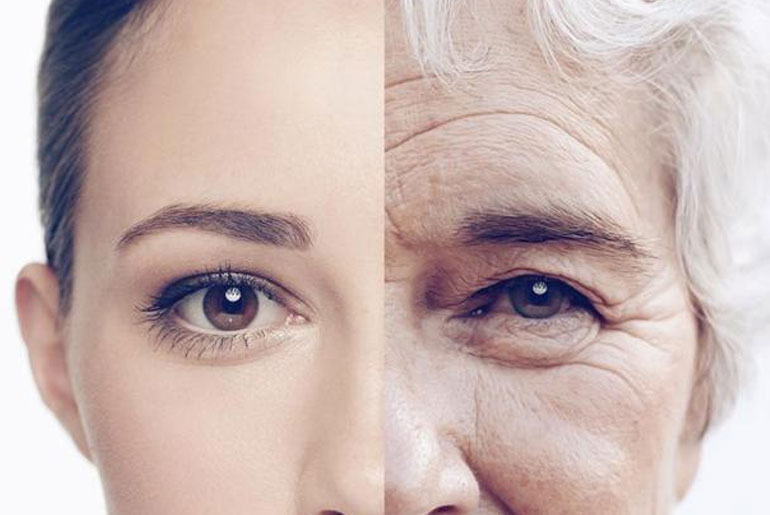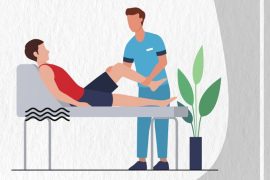The viral ‘age test’ that involves balancing on one leg with crossed arms and closed eyes aims to assess your body’s neurological health and overall balance. The longer you can maintain this posture, the younger your body supposedly feels. This unconventional method is based on the premise that good balance reflects healthy neurological functions, which are vital for aging well. Practicing balance exercises like this may help maintain stability and coordination as you age, promoting overall physical health and longevity. However, while fun and potentially insightful, it’s important to consider that individual health and fitness involve various factors beyond simple balance skills.
The ‘age test’ that involves crossing your arms, lifting one leg, and closing your eyes to gauge your body’s age is a popular yet informal activity rather than a scientifically validated measure. It focuses on assessing balance and coordination, which are aspects of physical function that typically diminish with age. While performing well in this test may suggest good neurological health and maintenance of these skills, it does not offer a comprehensive evaluation of overall fitness or biological age.
Physiotherapists and healthcare professionals rely on more rigorous assessments encompassing factors such as strength, flexibility, cardiovascular fitness, and overall physical function to provide a thorough understanding of an individual’s physical health status. While the age test can be entertaining and may highlight the importance of maintaining balance abilities, it should be viewed as a casual indicator rather than a definitive measure of one’s fitness or health. For a complete assessment of physical capabilities and health, it’s advisable to consult with a qualified healthcare provider who can perform comprehensive evaluations tailored to individual needs and goals.
Here’s how specific conditions associated with aging are typically assessed:
- Muscle Strength: This can be evaluated using tests such as grip strength, leg press, or bench press. Strength declines with age due to factors like muscle mass loss (sarcopenia) and decreased neuromuscular function.
- Balance and Coordination: Tasks like standing on one leg or walking heel-to-toe can assess balance and coordination, which are influenced by muscle strength, proprioception (sense of body position), and vestibular function (inner ear balance).
- Cardiovascular Endurance: Tests like the 6-minute walk test or step tests evaluate cardiovascular fitness, which declines with age due to reduced heart efficiency and respiratory function.
- Flexibility: Reduced flexibility is common with aging, affecting joint mobility and range of motion. Tests like the sit-and-reach test assess flexibility.
- Biomarkers: Analyzing biological markers such as hormone levels (e.g., testosterone, estrogen) and inflammatory markers (e.g., C-reactive protein) provides insights into overall health and potential age-related conditions like osteoporosis or cardiovascular disease.
- Functional Fitness Tests: These comprehensive assessments combine various tests to evaluate overall physical function, including activities of daily living, strength, endurance, flexibility, balance, and coordination.
Physiotherapists use these assessments to develop personalized treatment plans aimed at improving movement, function, and overall health. They emphasize that while tests like balance or age-related tasks can offer insights, they are only one part of a broader assessment strategy. The goal is to provide a holistic view of an individual’s health and fitness, rather than relying on simplistic age-related benchmarks.
The viral ‘age test’ you mentioned, typically based on arbitrary time thresholds for tasks like balancing, doesn’t scientifically determine a person’s biological age or overall health. Here’s why:
- Arbitrary Thresholds: The thresholds used in these tests (e.g., balancing for 5 seconds indicating over 65 years old) lack scientific basis. They are often created for entertainment or viral purposes rather than being grounded in physiological research.
- Limited Scope: Such tests focus on specific motor skills like balance or coordination, which are influenced by multiple factors such as muscle strength, proprioception, and vestibular function. However, they don’t provide a comprehensive assessment of overall health.
- Biological Age vs. Chronological Age: Biological age refers to the functional age of various physiological systems in the body, influenced by factors like lifestyle, genetics, and overall health. Chronological age, on the other hand, simply counts years since birth. The viral tests typically aim to correlate motor skills with chronological age, which doesn’t accurately reflect biological aging.
- Reliability and Validity: Reliable methods for assessing biological age include comprehensive physical assessments, biomarker analysis (e.g., hormone levels, inflammatory markers), and functional fitness tests (e.g., cardiovascular endurance, muscle strength). These provide a more accurate understanding of overall health and aging than short-term balance tasks.
- Consulting Healthcare Professionals: To determine how ‘old’ your body truly is in terms of health and fitness, it’s best to consult with healthcare professionals such as physiotherapists, who can conduct thorough assessments and provide personalized insights based on evidence-based practices.
In summary, while viral age tests can be entertaining, they do not provide meaningful insights into biological age or overall health. Comprehensive assessments conducted by healthcare professionals are necessary for an accurate evaluation of physical health and aging.
Disclaimer:
The information contained in this article is for educational and informational purposes only and is not intended as a health advice. We would ask you to consult a qualified professional or medical expert to gain additional knowledge before you choose to consume any product or perform any exercise.







